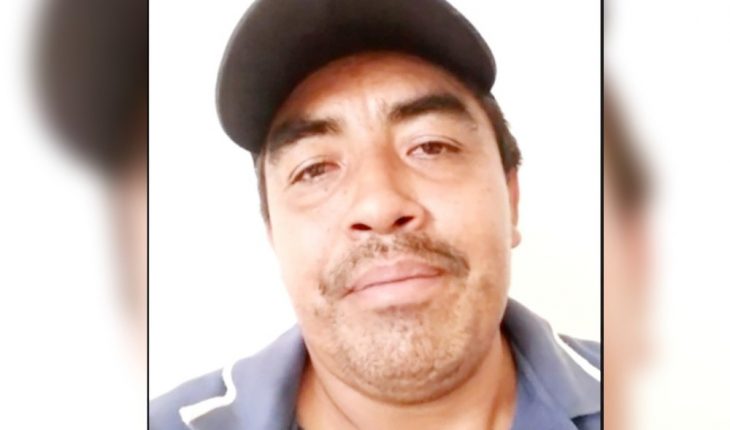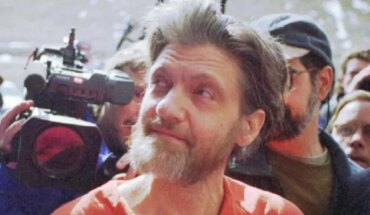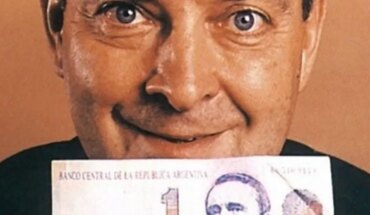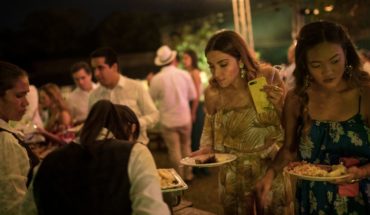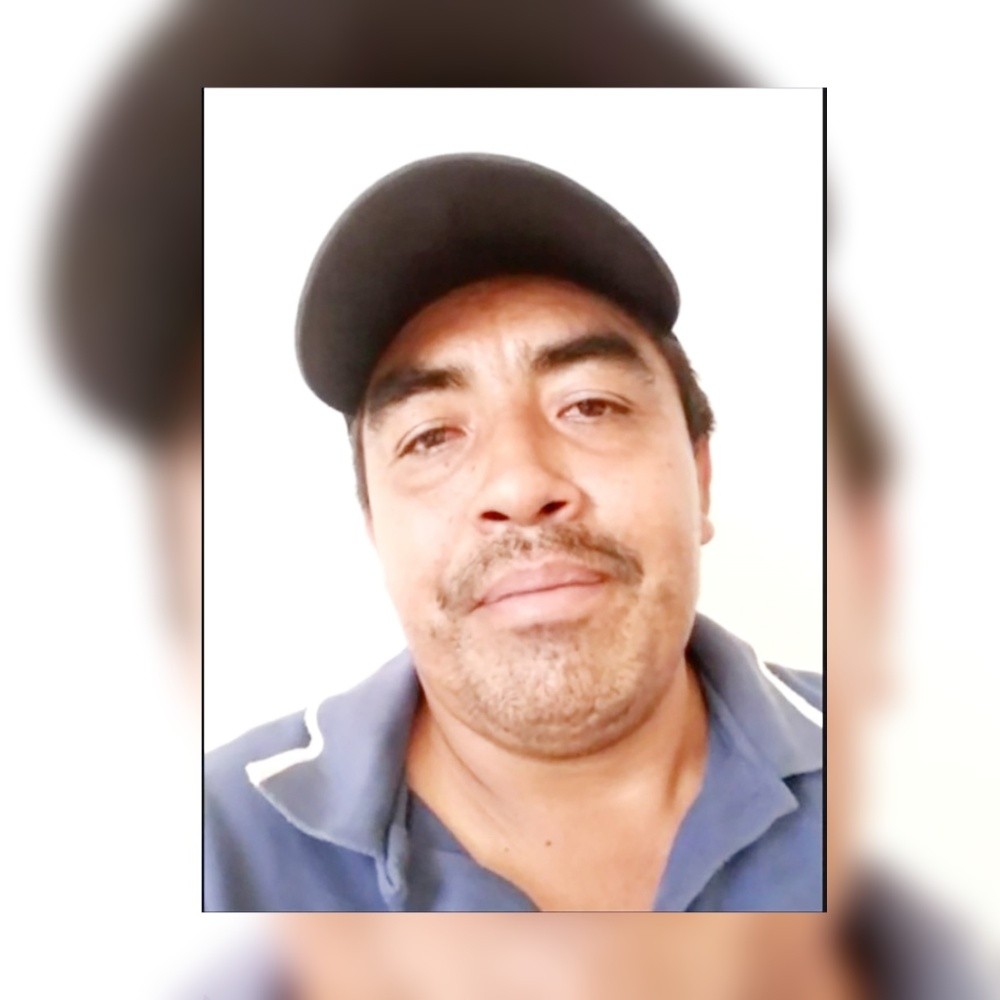
Sinaloa.- Pain. A pain deep inside, in the back, in the lungs, returns with cold water from the shower. It loses its taste again, which then returns, but with a bitter taste. Adam has lost a lot this year. He’s suffered irreparable damage. It’s not the same.
Adam Velázquez Hernandez continues life. He’s 40 years old. He got married at 19. She has three children: a 9-year-old girl and two boys, 14 and 19. Adam lives up to date. He has been a construction worker since he arrived in Sinaloa at the age of 16 and rebellion in tow. He left his town because he had a boy left: San Diego, Texcoco, State of Mexico. There are his roots, his pride, his mother, who sent him north with an uncle so that the boy would forge a life. Back in the center were the others: his father, his sister and his relatives.
Stay informed about what matters most to you
Get the most relevant news of the day in your e-mail
Thank you for subscribing!
Check your inbox to confirm your email and start getting the latest news
Take advantage and take the next step
Get our news alerts so you don’t miss anything
Receive notifications
Not bad! You’ve subscribed to notifications
Set up and choose your preferences
Set up notifications
Enter your e-mail
Subscribe
Subscribing involves accepting the terms and conditions
Not bad! You’ve subscribed to notifications
Set up and choose your preferences
Adam honestly keeps his family in Culiacán, because that was taught to him by his father, who was actually his grandfather. With an absent parent, he was instilled in hard work and to succeed on his own.
Her mother did various tasks: cleaning houses, selling things and until a few months ago she remained active in a juice and smooth position. His grandfather cultivated the land.
His mother brought him and another sister out on her own in the State of Mexico. His biological father apologized after his mother’s death. Adam considers his father who his grandfather, Eduardo Hernandez, was. Source: Courtesy
Adam’s mother, Minerva Hernández Ayala, was hypertensive and diabetic. He died at 58. His foster dad, Eduardo Hernández Zedillo, was hypertensive. He died at the age of 78. Both got the SARS-CoV-2 virus, and died at home in the State of Mexico because of Covid-19. They were not tested for it, but they had all the symptoms, and so they were diagnosed by the doctors who treated them at home or remotely. The Coronavirus Research Center at Johns Hopkins University in the United States accounted for more than 47 million contagions worldwide. Tenth place stands out in infections Mexico. Of the twenty countries most affected by COVID-19, Mexico has the highest lethality of all; that is, the number of confirmed cases (more than 933,000) has the highest death toll (92,100 until yesterday). Below are Iran and Italy (statistics and analysis in the link: cutt.ly/2gDBO2N). Succession of losses
Eduardo Hernández and Minerva Hernández lived in Texcoco, a municipality adjacent to Mexico City, in a house with various relatives. It was about eight people. The place was very visited by the kinship, as it was passing through to friends and acquaintances. People came and went constantly, but then, when the disease broke out in this home, they suffered discrimination, and no one wanted to get close anymore. On the one hand it was positive, because people began to take more care of themselves, Adam narrates. At the time there was still a lack of information, he says. The pandemic grew without stopping. It was a rapid succession of tragedies that marked the family that May.
Adam’s father Edward started with symptoms, but they were not really suspicious of what the severity of the new coronavirus meant. A doctor was going to take care of him at home, as the family decided never to go to the hospital. Adam points out that there was no word that what he had was COVID-19, and people continued to enter the residence. His father didn’t get ingsed, and the situation was aggravated. At this point it was when they decided to take him away from the others, but there was not much to do anymore: he died on May 3, around 5 p.m. His mother, Mrs. Minerva, who had taken care of him, also began with discomfort. He was telling his son on the phone that he felt a heat inside, but a cold man ran through his body on the outside. Adam sent him money to come to the doctor; however, with death in the house, at that point no one wanted to care for her, and the nearby hospital, calledGuadalupe Victoria, was collapsed with Covid-19 sufferers, Adam says. Immediately, the lady’s health is ag agravo: she couldn’t breathe and had bad nights, so they had to put oxygen on her and diagnosed her with Covid-19. Her daughter took her away from that address. She took her home, and took care of her, for at the residence of her parents three other Adam’s aunts also became ill. Everything in that home, which used to be full of people and life. Minerva died on May 7 in the early morning, around 00:20 a.m. Adam remembers very well the hours, days, details and feelings, although he had to block them. Adam didn’t think they were dead. She denied reality, even though she was on the phone with her sister that morning, when she told her that the lady was no longer breathing. It comforts him to know that he was at least there with them in Minerva’s last breath and exhalation. Adam regrets not being in San Diego, Texcoco, to say goodbye to them; maybe to help more, but his wife and friends made him see that he could also become infected, and then infect his loved ones, so he decided not to travel and take care of the money, because difficult times could come, he imagined. Neither Minerva nor Eduardo had social security, so they had their son’s support for medication, doctor payment and oxygen, plus cremation, so Adam spent about 32,000 pesos. May 8th was a tragic birthday for him. That day he did not receive the natural call from his mother, who was always the first to congratulate him. While others celebrated May 10, Mother’s Day, for him it was a rather uncomfortable and difficult day. Adam Velázquez Hernández also lost his godmother on May 11, Mrs. María del Carmen Hernández Zedillo; and his godfather on May 14, Mr. Jorge Escobar, who died in the State of Mexico, also by Covid-19. Adam’s friends and co-workers have died from the same pandemic. Chains of contagion have formed… death chains. Drowning and relief
As this whirlwind of events and emotions happened, Adam tried to concentrate on the work and forget what was going on, evade it, but he could not.” I could not, frankly, let go of the cry, as any son weeps for his parents. I went into depression like the third day my mom died. I went to the doctor. I was prescribed medicine, and I didn’t like that medicine. At night I would wake up with tachycardia, despair, nausea. One night, at 3:00 a.m., I feel bad, I get up, I go to the Red Cross, and I go in for three hours. I feel like I got it there, because I took great care of myself, all day I used water covers.” Adam exploded inside. Adam got the SARS-CoV-2 virus in Culiacán. He lost his health. The fear was immense in the face of what had happened to his parents. Adam couldn’t lose anyone else anymore. He 18th in his room for fourteen days. Everyone wore water covers at home. He made video calls with his distant relatives and opened the windows of his room to get the air in. Nobody went out there in the yard in two hours. They disinfected the house well. Adam didn’t want anyone to come out. He was very afraid that his children or his wife would get sick. The positive thing was that no one else developed symptoms. Recovery was very slow after developing pneumonia and having very low defenses. Adam appreciates the support of his employers and friends; also the selfless help of a pneumologist, who did not charge him and treated him by phone, as well as a doctoral weasel who was also very aware of him from a distance. “It’s very sad, because people don’t think it’s going to hit them hard. He hit me hard, because I did use oxygen. I wasn’t intubation because from beyond Mexico the same medicine used by other guys of mine sent me the same prescription, and I bought it, which by the way is not cheap at all that medicine. I didn’t have much money to support this disease.” Adam spent 35,000 pesos on his medications, studies and payment of doctors. The prescriptions prescribed to Adam have been sent to other friends and acquaintances who have fallen ill, as well as the prescription made by a family-friendly doctor in the State of Mexico, which does not come to recipe,” he says, because it is written on a sheet, but that blade saved many in his village, he narrates. And they went through WhatsApp, especially it reached vulnerable people and they didn’t have a chance to go or spend on doctors. After his confinement, the tests still showed spots on his lungs, and it took time to recover, but preferred to enter fully to work on the construction sites, again to work as a mason. That’s his life, and he’d been inactive for a long time. There was a lack of sustenment in the house, and financially the family was wrong after so many expenses. Adam took two months to get his sense of taste back, 35 days for him to unpaosediarrhoea completely, because the medicine didn’t work for it. He says he’s still bringing in symptoms, which never completely went away. Her weasel is a doctor, and told her she may have suffered liver damage, so she had to get another chest x-ray, but she didn’t catch up with him anymore, so she postponed this for better times. Adam says that for many 35 thousand pesos it is nothing, but for those who live a day, like him, they are. Reflection and empathy
The mason explains that as a result of these tragic events he changed his thinking and was able to reconcile with God, as well as with his biological father. He felt fear and loneliness, so he sees that this is another opportunity in life to change and be different. Adam Hernandez now knows a lot about Covid-19. He knows the symptoms, and he can put himself in each other’s shoes when they suffer distress, that uncertainty that it feels to know the test results, so he has supported other friends and colleagues who have fallen ill, guided them through the phone, encouraged them and even shared by WhatsApp the prescriptions of the medications they prescribed to him. Adam no longer uses trucks, only Uber, and bathes immediately upon arrival from home. The water cover always wears it when working. Following the recommendations of the World Health Organization (WHO), Adam is now a strong advocate for masks, isolation and healthy distance, because he knows that by these measures his children and wife did not get sick. Every time he gets the chance he tells part of his story to strangers and fellow builders: “I lived it in my own flesh. Take care. This is real,” though many still “say it’s a story.” A few days ago, with the change of weather and the coldness of the environment, Adam was made easy to get into bathing with the icy shower, and as a lightning bolt a pain began to park in his back, and he felt his chest closed again. This is credited with losing his sense of taste again, as when he had Covid-19. He says he’s noticed that it keeps happening to him, especially when he drinks or bathes in cold water. Adam realized that he has to eat sweets in order to regain his flavor. Feel a bitterness in your mouth that stays for days, until it suddenly disappears. State of Mexico and Sinaloa
With 1,725 contagions and 254 dead accumulated as of May 14, at the time of the cut-off of a Debate analysis in that month, Sinaloa was the fifth state with the highest incidence of contagion, below Mexico City, which nearly reached 14,000 cases; the State of Mexico maintained almost 5 thousand; Baja California had almost 2,000, and Tabasco exceeded 2,000 cases. On April 26, when there were more than 14,000 contagions and just 1,000 deaths accumulated, President Andrés Manuel López Obrador declared, “We are doing well, because the epidemic has been tamed.” Today, Mexico accumulates more than 92,000 people with diabetes, high blood pressure and heart problems. Internationally, scientists are developing a series of vaccines to curb the lethality of the virus.

